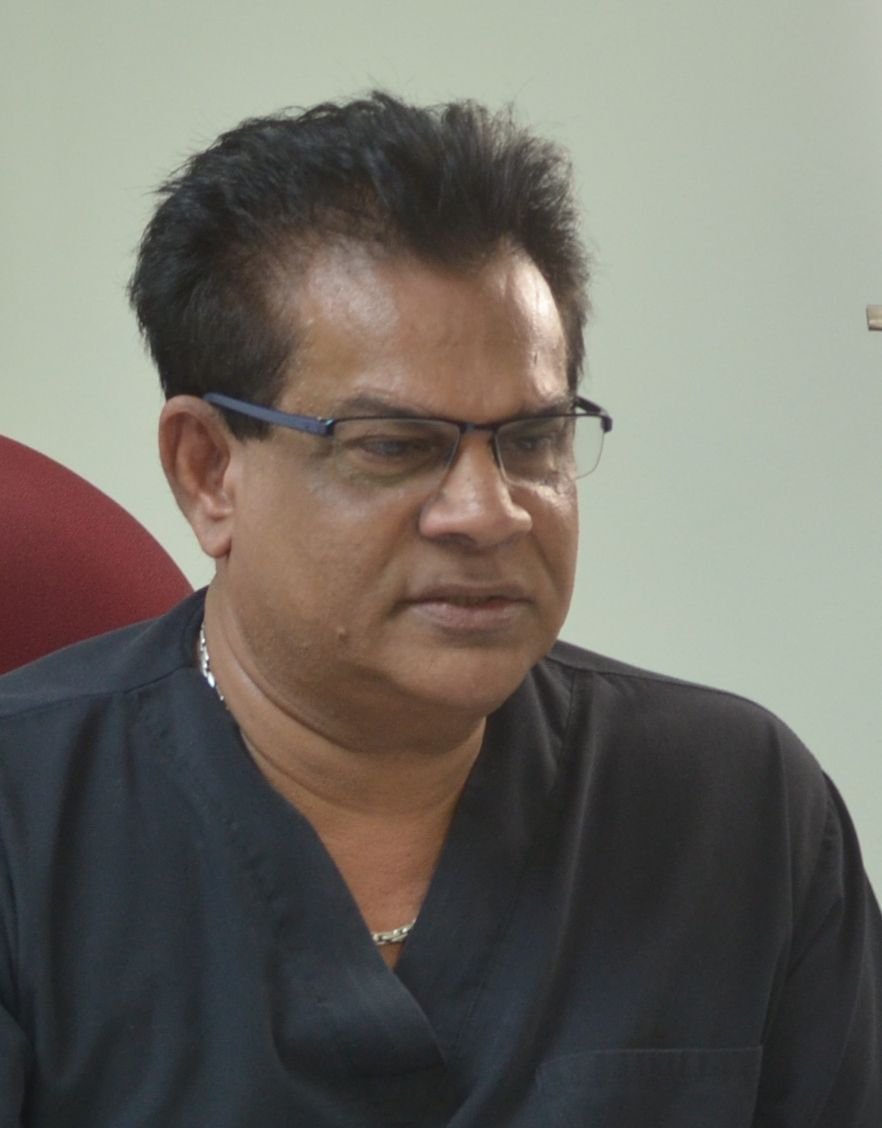(Trinidad Guardian) A former health minister is warning the public that the steady rise in costs to provide free medical care to the population will eventually put the country in a financial bind.
Dr Fuad Khan, who served as health minister under the United National Congress and People’s Partnership governments, was responding to Finance Minister Colm Imbert’s claim that financing healthcare was becoming a heavier burden on Government.
At a Standing Finance Committee meeting on Monday, Imbert said it would be difficult to find half a billion dollars to supplement health sector expenditure but conceded that it must be done. A total of $495,286,000 was requested and eventually approved for the sector.
In a telephone interview with Guardian Media yesterday, Khan agreed that health costs have skyrocketed over the years, adding that free healthcare is difficult to maintain when there is no national health insurance plan in place. However, he noted that there remains too much wastage in the sector.
“What we have to do is develop a system where people who could afford it and want free healthcare can pay some part of it (to be injected) into the system because it’s only going to bankrupt the Government, and the young people of today will suffer because they will not get whatever is due to them because we have spent it all on this generation,” he said.
Khan, a surgeon and urologist, said many unnecessary expenses in the health sector can be reduced to mitigate costs. He criticised the purchase of expensive cancer drugs that do not significantly improve life expectancy. Additionally, he mentioned issues with the Government’s C40 system, which stores and distributes pharmaceuticals to regional health authorities.
The system, he said, is inefficient and sometimes provides the wrong items, leading to further waste. He also highlighted the misuse of the public health system by those with health insurance.
“People always quote Canada and London but their tax-based system is about 40 per cent to as much as 60 per cent. We don’t have that, so it’s very difficult to sustain that level of care, free. Somebody has to pay for it,” he added.
Khan suggested that T&T follow Japan’s “fat tax.”
The Metabolic Syndrome Countermeasures Promotion Law was introduced in that country 2008 to support employee health. Companies are required to provide resources to obese staff, failing which the organisation can be fined.
Khan said there was no political will to cause the public to pay for better service, since this would push voters in the direction of the opposing party.
He said, “The Government has to take some serious action or go to the IMF.”
His sentiment was echoed by political scientist Dr Maukesh Basdeo.
“This assistance through CDAP was a political decision. Any removal is going to have some sort of fallback or political fallout. It’s going to have it.”
Imbert has made it clear that the Government will not be slashing free healthcare, but he said value for money is necessary.
Meanwhile, UNC shadow health minister Dr Rishad Seecharan said the real issue was not rising costs but management of the country’s finances.
He urged Government to spend more money on healthcare and less on lawyer fees to continue funding CDAP.
He was referencing the $120 million more requested by the Office of the Attorney General to pay local and foreign lawyers.






